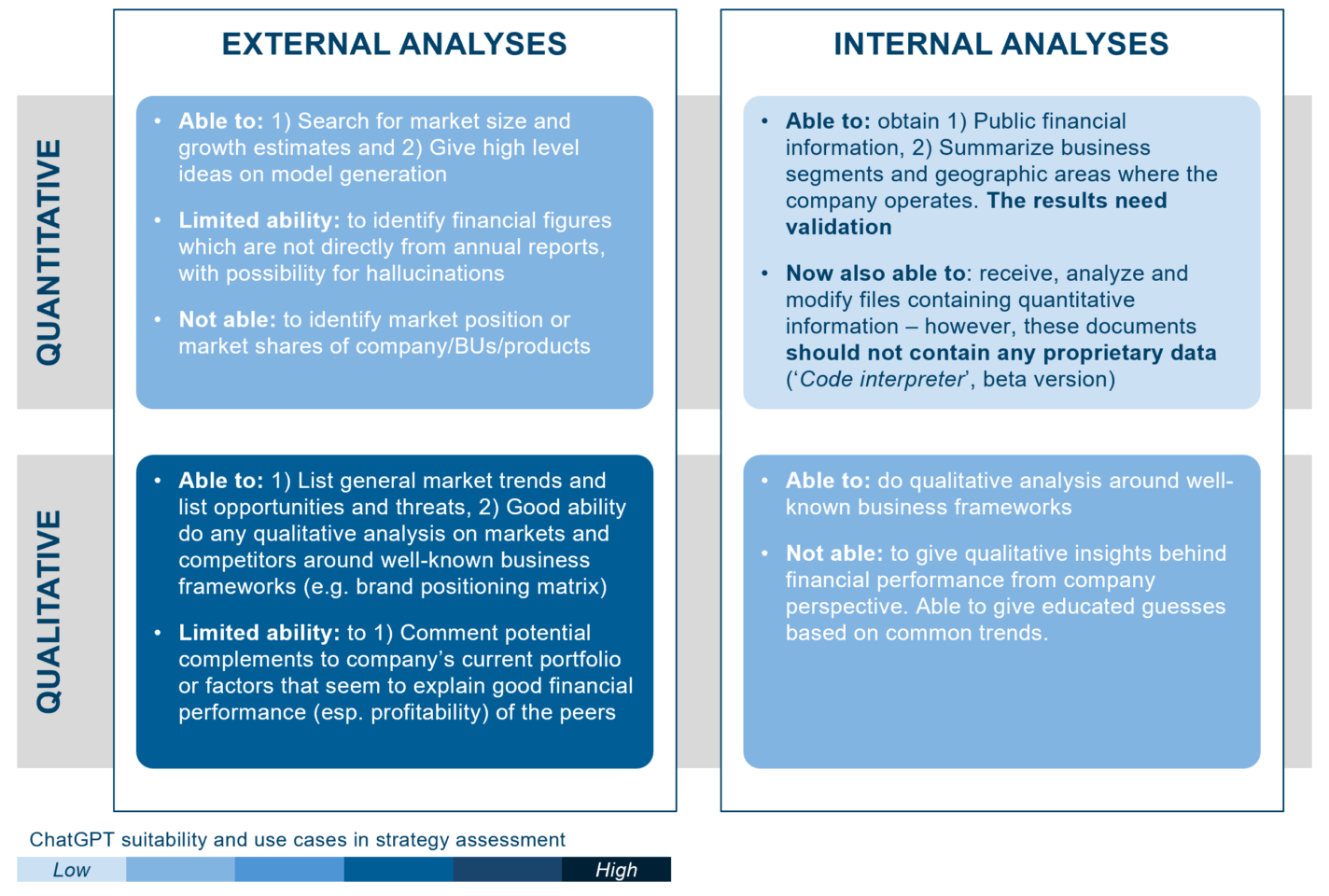Generative AI as part of strategy work
15.9.2023
As the business world is buzzing with rapidly evolving Generative AI capabilities, we wanted to shed light on one application area that has not been the center of attention at many companies. GenAI is already an effective tool to be used in strategy work, as it can fuel thinking and do part of the “heavy lifting” work that is often needed for developing the fact base for strategic decision-making.
ChatGPT-style text-based GenAI tools work as ‘personal assistants,’ which can support ideation, problem structuring, data collection, and outcome validation. To provide a clearer and more concrete understanding of their capabilities, we created 1) a summarizing framework of their suitability for certain contexts and 2) selected use-cases that showcase GenAI’s efficiency within the field of strategy consultancy.
- In our projects, GenAI solutions (especially ChatGPT) have excelled, particularly in qualitative analyses that rely on external data sources. Optimizing the effectiveness of these tools is a straightforward process that requires integrating selected extensions, such as WebChatGPT and FileUploader Extended
- It is worth noting, however, that when it comes to quantitative tasks, the incremental improvements in performance compared to human capabilities are still relatively modest. This limitation is primarily due to challenges like the inability to upload proprietary data onto public platforms and data formatting requirements, such as converting PDFs into plain text before more detailed analysis. Additionally, in complex cases with multiple parameters, processing can occasionally be disrupted, requiring a restart of the task processing
For more in-depth information about our example ChatGPT use cases, download our point-of-view material by clicking here.

Nonetheless, it is important to recognize that the GenAI landscape is evolving at an unprecedented pace, with new applications and functionalities emerging almost weekly. The introduction of OpenAI’s Enterprise version, Meta’s Llama2, and Google’s forthcoming adapter models could potentially be game-changers. These advancements will enable companies to custom-train their own language models using proprietary data, without handing over ownership to external vendors, thereby paving the way for increasingly sophisticated use cases.
Jori Stjerna
Chief Digital Advisor
+358 50 351 0182
firstname.lastname@august.fi

